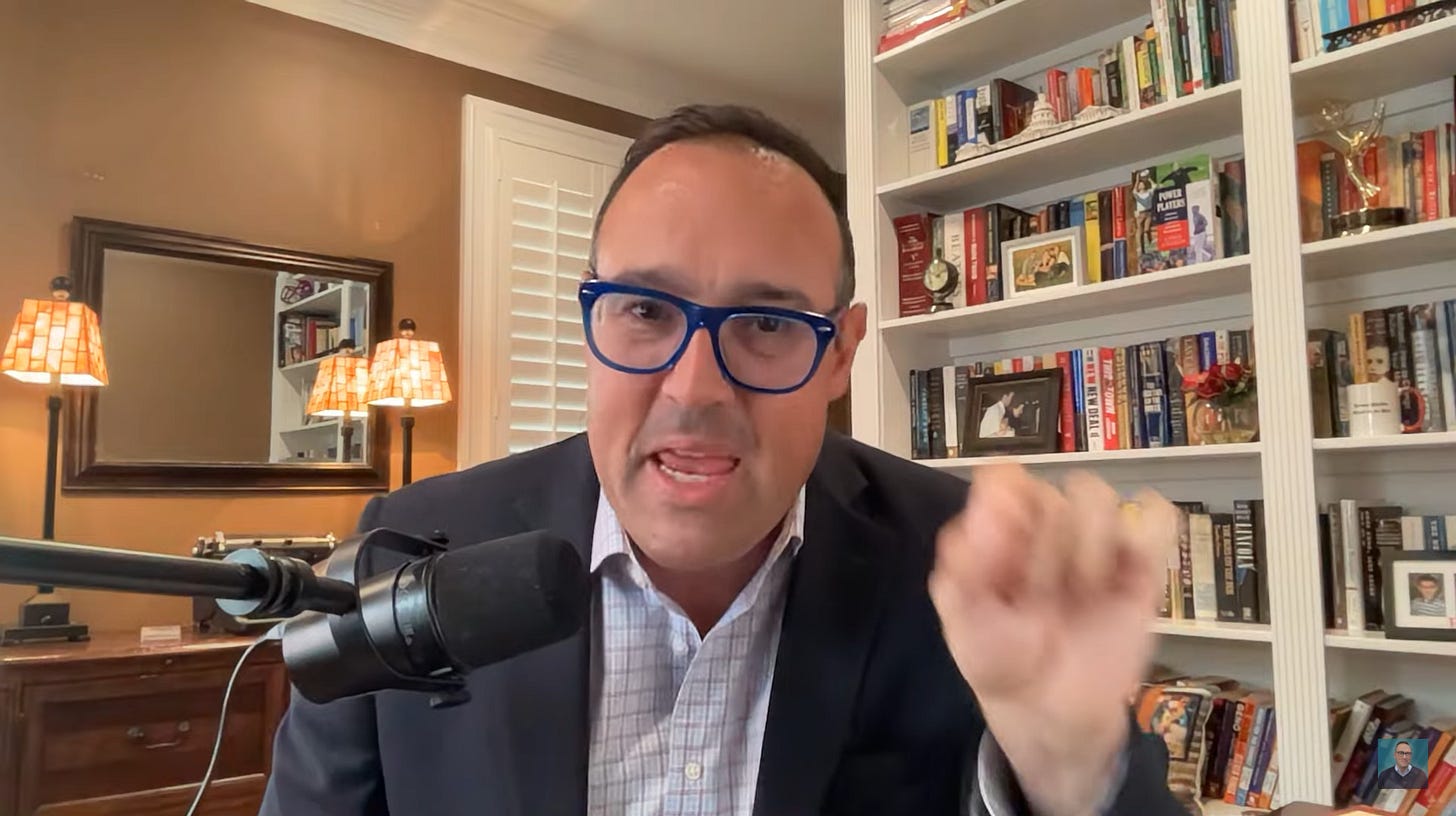Is there life after CNN? Chris Cillizza hopes so
After being cast off from the “most trusted name in news,” the political analyst is trying to forge his own path.
If you’re someone who’s been unlucky enough to get fired from a job — whether it was for cause or the result of mass layoffs — there’s a good chance you remember it as one of the worst days of your life. The experience brings with it such a potent mix of shame, insecurity, and anxiety that it triggers a feeling almost akin to shell shock.
Chris Cillizza certainly experienced all of those emotions when he was let go from CNN in December of 2022, but he has the added bonus of getting to relive them whenever someone wants to be cruel to him on the internet. On October 3rd, for instance, a Twitter account with the username Brady Eyestone tweeted a reply that read, “Jesus man. This is why CNN fired you.” A few days before that, another user named Sann Diamond tweeted, “There's a reason why CNN fired you.” In fact, if you run a Twitter advanced search for the terms “@ChrisCillizza,” “cnn,” and “fired,” you’ll see that someone lodges this attack roughly every other day, on average. In September alone, 17 tweets contained those three words.
Cillizza has developed a thick skin after so many years of writing about politics on the internet, but it’s clear that this particular brand of insult gets to him, especially because he thinks it mischaracterizes his firing. “As far as I know, I was a number on a spreadsheet for a company that we knew needed to cut money,” he told me. During his entire tenure at the network, he had received nothing but positive feedback from his bosses, and his pieces were a major traffic driver for CNN’s website.
Cillizza also doesn’t understand why someone would celebrate such a uniquely horrible event, even if it happened to someone they didn’t like. “About 40% of people who work will be laid off at some point in their life. So it's not 90%, but it's also not 5%,” he said. “It fucking sucked. It was awful … Let's say a person I really don't like in politics gets laid off. I could never imagine being like, ‘hey, man, still unemployed?’ It’s a weird flex.”
But whatever pain Cillizza feels from these cheap shots is at least partially assuaged by the progress he’s made in his post-CNN career. In early 2023 he soft-launched a Substack publication that, as of this writing, has reached 3,654 paying subscribers, which translates roughly to $200,000 in annual revenue. His YouTube channel has grown to over 46,000 subscribers and its videos regularly amass tens of thousands of views — not exactly MrBeast numbers, but also not that far off from the viewership for your average CNN segment. And in November he’ll begin hosting a weekly TV series for the Monumental Sports Network where, per Washingtonian, “he’ll interview politicians and politics-adjacent people about their own athletic experiences and fandom.”

